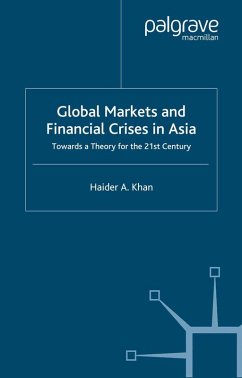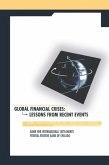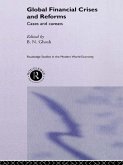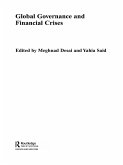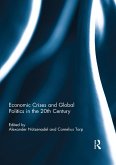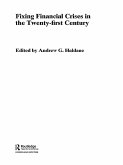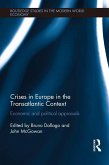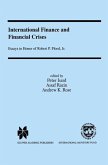Khan presents a theory of financial crises in the age of globalization from an evolutionary perspective and suggests policies that may be necessary for averting or managing new financial crises. Starting with the Asian financial crises, he identifies new types of financial crises that result from a combination of liberalization, weak domestic institutions for economic governance and a chaotic global market system without global governance institutions. Suggested solutions involve building new institutions for global and domestic governance and domestic and international policy reforms.
Dieser Download kann aus rechtlichen Gründen nur mit Rechnungsadresse in A, B, BG, CY, CZ, D, DK, EW, E, FIN, F, GR, HR, H, IRL, I, LT, L, LR, M, NL, PL, P, R, S, SLO, SK ausgeliefert werden.

